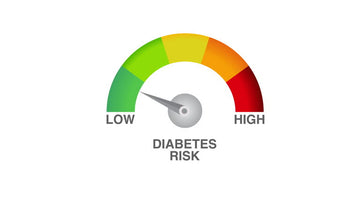Understanding the Difference Between A1C, Fasting Glucose & Random Sugar Tests

When it comes to managing blood sugar, knowing the difference between A1C, fasting glucose, and random sugar tests is essential for proper diagnosis, tracking, and long-term care—especially if you're living with or at risk for diabetes.
Let’s break down what each test means and how they work together to provide a complete picture of your blood sugar health.
What Is an A1C Test?
The A1C test (also called HbA1c) measures your average blood sugar level over the past 2 to 3 months. It does this by checking the amount of glucose attached to your red blood cells.
-
Normal A1C: Below 5.7%
-
Prediabetes: 5.7% – 6.4%
-
Diabetes: 6.5% or higher
Why It Matters:
The A1C test shows how well your blood sugar is controlled over time, making it ideal for long-term diabetes management.
What Is a Fasting Glucose Test?
A fasting blood glucose test measures your blood sugar after you’ve gone at least 8 hours without eating.
-
Normal: 70 – 99 mg/dL
-
Prediabetes: 100 – 125 mg/dL
-
Diabetes: 126 mg/dL or higher
Why It Matters:
This test is a quick way to check how your body manages blood sugar without food. It’s commonly used for diagnosing diabetes.
What Is a Random Glucose Test?
The random blood sugar test measures your glucose levels at any time of the day, regardless of when you last ate.
-
Diabetes is suspected if levels are 200 mg/dL or more with symptoms like frequent urination, fatigue, or excessive thirst.
Why It Matters:
This test is helpful when someone shows signs of high blood sugar and needs immediate evaluation.
Summary Table: Blood Sugar Test Comparison
| Test Type | Measures Blood Sugar Over | Requires Fasting | Diagnostic Use |
|---|---|---|---|
| A1C | 2–3 months | ❌ No | Long-term monitoring |
| Fasting Glucose | Current level (no food) | ✅ Yes | Initial screening & diagnosis |
| Random Glucose | Current level (any time) | ❌ No | Symptom-based diagnosis |
Why You Might Need All Three Tests
Each test provides different insights:
-
A1C helps track how well your diabetes is managed over time.
-
Fasting glucose offers a baseline of your sugar levels.
-
Random glucose helps in urgent or symptomatic cases.
Together, they give your healthcare provider a complete picture of your blood sugar health.
Final Thoughts
Whether you’re newly diagnosed or monitoring your diabetes, understanding how these tests work is key to lowering your A1C, staying in range, and living a healthier life.
At A1CGuard.com, we’re committed to providing resources and support to help you make confident, informed decisions about your blood sugar control.





